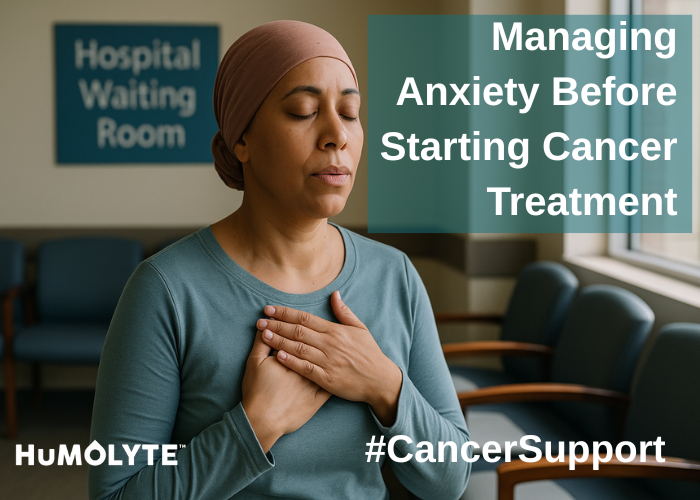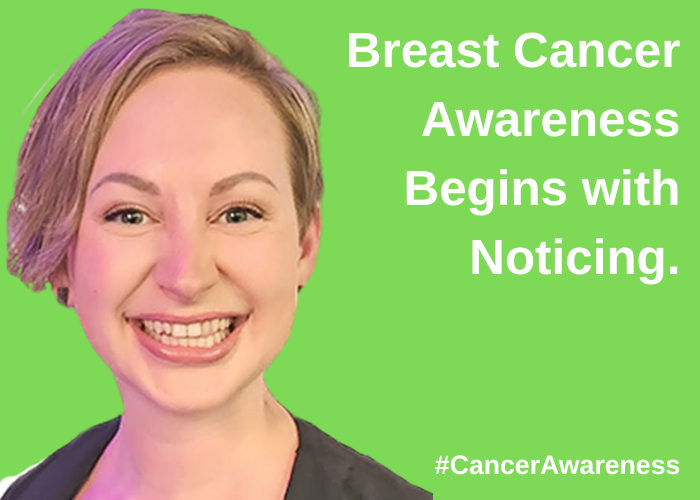Blog
HuMOLYTE Recognized with Sacramento Business Journal Innovation Award
HuMOLYTE, an electrolyte mix with prebiotic ingredients developed by IGH Naturals, has received the Sacramento Business Journal’s Innovation Award. Designed to support hydration in patients with vulnerable gut function, including those undergoing chemotherapy, HuMOLYTE is currently classified as a food while the company pursues FDA approvals. Early company-reported data suggest it may help reduce dehydration-related side effects and the need for IV fluids, making it a topic worth discussing with oncology care teams.
A Persistent Cough, a Hidden Mutation: Stephanie’s ALK-Positive Lung Cancer Journey as a Young Mom
When a young mom in Harrisburg brushed off a nagging cough as allergies, cancer was the last thing on her mind. Stephanie’s story of stage 2B ALK-positive lung cancer shows how one X-ray changed everything, how surgery and chemotherapy tested her limits, and how targeted therapy and a fierce love for her daughter keep her moving forward. For patients and caregivers, her journey is a reminder to listen to your body, ask hard questions, and never walk this road alone.
Join Us for Cancer Biomarker Awareness Day — November 13th, 2025
Cancer Biomarker Awareness Day on November 13th, 2025, reminds us of the vital role that biomarker testing plays in guiding cancer treatment. Learn what biomarkers are, why testing matters, and how you can advocate for more personalized care.
When a Common Virus Turns Dangerous: The Hidden Link Between HPV and Skin Cancer
A recent breakthrough study shows that a common form of human papillomavirus (HPV) may not just assist in causing skin cancer — it can cause it outright. This finding changes what scientists know about one of the world’s most common cancers and could reshape how patients with immune disorders are treated.
Veteran Caregiver Resources: VA Support, Financial Aid, and Cancer Care
Veteran caregivers support those who served—often while navigating complex benefits and cancer care. This guide explains VA caregiver programs (PGCSS and PCAFC), financial stipends, respite options, oncology support, and palliative care access. It’s written for answer engines and humans alike: quick Q&A, checklists, and structured data you can act on today.
Managing Anxiety Before Starting Cancer Treatment
The days before beginning breast cancer treatment can be filled with fear, uncertainty, and overwhelming anxiety. This guide breaks down what causes this anxiety, how to manage it effectively, and what kind of support you can expect from your care team.
November is Lung, Pancreatic, Stomach and Carcinoid / Neuroendocrine Tumor Cancer Awareness Month
November shines a light on several cancers recognized in the U.S., including lung, pancreatic, stomach (gastric), and carcinoid (neuroendocrine) cancers. This guide helps patients and caregivers understand the importance of awareness, early detection, and compassionate care.
Statins and Chemo Brain: What the Research Shows
A new clinical study finds that taking statins during chemotherapy does not harm memory or thinking. In fact, people treated with doxorubicin and atorvastatin may maintain or even improve cognitive function during cancer treatment.
October Is Liver Cancer Awareness Month: One Mom’s Story of Resilience and Advocacy
A 38‑year‑old mother of four wakes at 3 a.m. with searing flank pain and walks into an ER expecting a kidney stone. Weeks later, she learns it is stage IV cholangiocarcinoma—bile duct cancer that has spread to her spine. This is Tiffany’s story of tests, surgery, chemo and immunotherapy, the mental health whiplash, and the fierce advocacy it takes to keep moving through uncertainty. October is Liver Cancer Awareness Month, a reminder to know the signs and advocate for early detection.
Facing Financial Toxicity After Cancer: Understanding the Hidden Costs and Finding Real Help
Over 40% of cancer survivors in the U.S. experience financial toxicity — the heavy burden of medical and non-medical costs that come with treatment. This blog explains what financial toxicity really means, why it’s not your fault, and where patients and caregivers can find trusted help.
Cancer Patients Who Got a COVID-19 Vaccine Lived Much Longer
A new study from the University of Florida and MD Anderson Cancer Center reveals that cancer patients who received a COVID-19 mRNA vaccine within 100 days of starting immunotherapy lived significantly longer. This discovery could open the door to future “universal” cancer vaccines that enhance immune responses.
When Chemotherapy Doesn’t Work: Understanding Why Some Breast Cancer Treatments Fail
Chemotherapy doesn’t always bring the results patients and caregivers hope for. This blog explores why some breast cancer tumours resist chemo, how genetic and biological factors play a role, and what steps patients and caregivers can take to ensure treatment is tailored and effective.
How Chemotherapy May Affect the Brain’s Drainage System — A Closer Look at “Chemo Brain”
A new study suggests that some chemotherapy drugs, especially docetaxel, may change the brain’s lymphatic drainage system and play a role in “chemo brain.” Researchers found that these changes could affect how the brain clears waste and maintains healthy function.
HuMOLYTE Chemotherapy Patient Experience Survey
HuMOLYTE is inviting individuals preparing for chemotherapy to participate in a Patient Experience Survey. Selected participants will receive a complimentary supply of HuMOLYTE, a GRAS medical food designed to support hydration, electrolyte balance, and mucosal health. Participation includes following the recommended protocol and completing a short post-treatment survey. Spots are limited—apply today.
Why Cancer Is Rising in Young Adults—and What You Can Do About It
Colorectal cancer rates are four times higher in people born in 1990 compared to those born in 1950. And it’s not just colorectal cancer—14 types of cancer are rising in people under 50. This blog breaks down why this is happening, what it means for you or your loved one, and how to take action today.
Awareness Starts with You: Lessons from a 31-Year-Old Survivor
At 31, Christine felt a hard, unmoving lump and heard the words “This isn’t benign.” Her story moves from panic to a plan—fertility decisions, reframing chemo as medicine, choosing lumpectomy after a strong response, and facing the unexpected weight of survivorship. For Breast Cancer Awareness Month, she shares what truly helped—and what patients and caregivers can do next.
Understanding Extra Nodal Extension in Lymph Nodes: What Patients and Caregivers Need to Know
Extra nodal extension (ENE) happens when cancer cells break through the covering of a lymph node. While it doesn’t change your cancer stage, it can influence treatment decisions. Learn what ENE means and how it may affect care.
October is Breast & Liver Cancer Awareness Month
October shines a light on breast cancer, metastatic breast cancer, and liver cancer. For patients and caregivers, it’s a time to focus on early detection, support, and advocacy.
Mouth Microbes and Pancreatic Cancer: What Caregivers and Patients Should Know
A new study has found that certain bacteria and fungi in the mouth may be linked to a higher chance of developing pancreatic cancer. Researchers discovered that people with certain oral microbes were more likely to develop the disease, suggesting that a simple mouth swab could one day help with earlier detection. While this research is still in its early stages, it offers hope for new screening tools and reminds us of the importance of everyday oral health.
Slowing Down and Finding Strength — Lonnie’s Prostate Cancer Journey
When Lonnie was diagnosed with stage four metastatic prostate cancer at 54, he faced fear, pain, and overwhelming decisions. Seven years later, he shares what kept him moving forward: slowing down, learning, and caring for his mental health. His message is especially powerful this September, during Prostate Cancer Awareness Month.




















